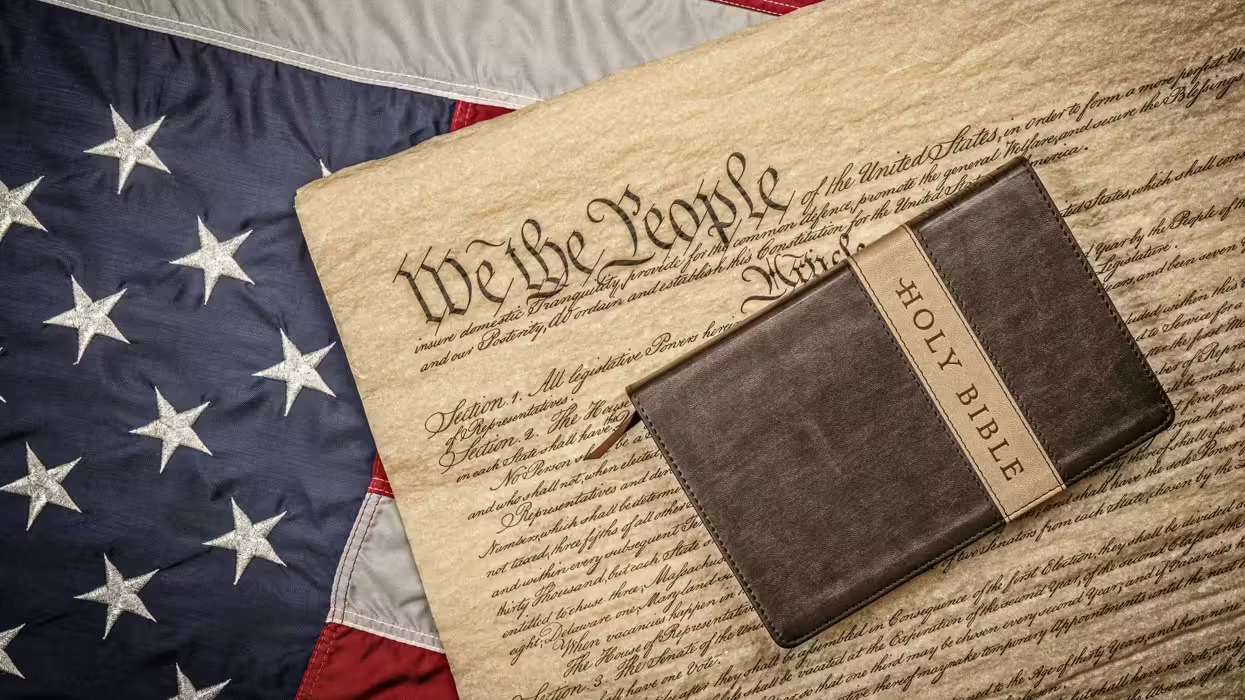© 2025 Blaze Media LLC. All rights reserved.
LOUISVILLE, Ky. (AP) — Amid a nationwide shortage of a lethal injection drug, documents obtained under a freedom of information request show two pharmaceutical companies declined to sell Kentucky a supply of the sedative.
The state e-mails obtained by The Associated Press show one firm, KRS Global Biotechnology of Boca Raton, Fla., explained it's refusal by saying there was no doctor involved in the purchase of sodium thiopental, even though Kentucky law bars physicians from being involved in administering executions.
No reason was given in the e-mail traffic between state officials and pharmacists for a canceled order from the other company, Spectrum Chemical and Laboratory Products of Gardenia, Calif. A Spectrum official told the AP the ordered was scrapped when it sold that part of its business last year.
At least 7 other states that use sodium thiopental for lethal injections have had trouble in recent months finding enough of the drug, whose main U.S. manufacturer has cited supply problems. The shortage has not delayed any executions in Kentucky because they have been on hold since a judge's order in September over an unrelated issue.
The Kentucky e-mails are the first public record of companies declining to sell the drug to states for executions.
They show a massive search for any stock of unexpired sodium thiopental, with Kentucky prison officials contacting more than two dozen states, more than a half-dozen chemical companies and even the federal Bureau of Prisons. While Kentucky in June gave Ohio 3 of the 6 grams needed to carry out an execution there, prison officials found no state willing to share their limited supply of the drug with Kentucky.
"I am beginning to think drug companies and suppliers are not real happy to have to supply us for this use," Phil Parker, warden of the Kentucky State Penitentiary that houses the state's death chamber, wrote in a July e-mail
Kentucky started searching for sodium thiopental in January 2010, about six weeks after the state Attorney General's office asked the governor to set execution dates in three cases.
By June, it had focused on Spectrum Chemical as the only company with the drug in stock. The state placed an order with Spectrum on June 14 order for 50 grams of the fast-acting sedative, enough to conduct eight executions. But in July, Spectrum called off the deal.
State officials, in e-mails, said the cancellation came after Spectrum found out the customer was the Kentucky Department of Corrections, not a hospital or clinic, as listed on the department's federal license allowing the drug purchase.
A pharmacist at Fredonia Pharmacy Corner, an outlet 15 miles from the prison that the state used to buy other drugs, offered to order the sodium thiopental for Kentucky as long as he could tack on a 15 percent markup. Spectrum rejected the order, saying they don't sell to pharmacies.
The state penitentiary's Parker speculated in an e-mail that Spectrum figured out what the drug would be used for and the link between the pharmacy and the prison.
"Bottom line is, they are not going to sell to anyone or any entity associated with us," Parker wrote on July 19 to Kentucky Corrections Commissioner LaDonna Thompson.
Brad Ashby, a former pharmacist at Fredonia Pharmacy Corner, told Parker in an e-mail that Spectrum initially had no issues with selling the drug to him.
"I made it clear to Spectrum on Friday that we were a pharmacy and they did not say that they couldn't sell to us," Ashby wrote on July 19. "In fact, 'pharmacy' is a choice on their application."
Ashby declined to comment last week for this story.
Julie Berryman, president of Spectrum's West Coast division and general counsel, told the AP the company takes no stand on the drug being used for executions. Berryman said the contract with the Kentucky prisons was part of the company whose business was sold to another firm last year and that sale meant the order had to be canceled.
"We're a business," Berryman told The Associated Press. "We would never decline a sale for political reasons."
Kentucky then negotiated a $16,000 order with KRS-GBT in September to cover enough of the drug for six executions, but the deal fell through because the company insisted that a doctor take part in the acquisition, said Jennifer Brislin, a spokeswoman for the Kentucky Justice Cabinet.
Having a doctor participate in buying the drug could have violated state law, which forbids physicians from having a role in an execution.
"The Department of Corrections couldn't comply with that request," Brislin said.
KRS-GBT did not return messages from the AP seeking comment.
The two companies' refusal to sell sodium thiopental to Kentucky set off a scramble by the Department of Corrections to get some of the dwindling national supply of the drug before the state's remaining stock went bad in October.
As the search wore on, Parker became less and less optimistic that Kentucky would be able to find the drug, calling Spectrum "our last, best hope" and that he was "at wits end" because no one could say when the chemical would be produced again.
To distance the purchaser of the drugs from the state, Parker suggested hiring a pharmacist not previously associated with the state to call and order the drug. Prison officials also looked into having the Kentucky State Reformatory, which serves as the prison system's medical center, order the chemicals.
Attempts by the pharmacist at the Kentucky State Reformatory to purchase the drug were unsuccessful and the plan to hire a pharmacist on contract never came to fruition.
The primary producer of sodium thiopental, Hospira, Inc., of Lake Forest, Ill., has blamed a national shortage on a lack of raw materials. Hospira and the Food and Drug Administration have said the product should be available early this year.
Sodium thiopental has been used as an anesthetic in surgery, but many hospitals have switched to propofol to render patients unconscious, leaving very few medical uses for sodium thiopental.
Officials with Hospira have written to at least two states — Ohio and Mississippi — saying the drug is produced with medical uses, not executions, in mind.
"As such, we do not support the use of any of our products in capital punishment procedures," Dr. Kees Gioenhout, vice president of clinical research and development, wrote to Ohio prison officials in March.
While Kentucky law prohibits doctors from taking an active role in executions, there's no similar ban on pharmacists. The American Pharmacist Association, based in Washington, D.C., is opposed to any law or regulation mandating or prohibiting pharmacists from taking part in the lethal injection process, said association spokeswoman Michelle Fritts.
Kentucky returned to the Fredonia pharmacy to obtain another lethal injection ingredient, potassium chloride. The state got a third part of the lethal brew, pancuronium bromide, from Henry Schein, a Melville, N.Y., company that sells pharmaceuticals and medical products.
State records obtained by the AP show Kentucky has 500 mg of pancuronium bromide, which causes paralysis, that expires in November and another 150 mg that expires in March 2012.
Kentucky also has 720 milliequivalents of potassium chloride, which causes cardiac arrest, that expires in February and another 2,250 that expires in February 2012.
Kentucky's stock of 6 grams of sodium thiopental expired before the state could carry out an execution. A Sept. 16 date for condemned inmate Gregory L. Wilson, convicted in 1988 of kidnapping, raping and killing a woman in northern Kentucky, passed when a judge halted all executions in the state over concerns about how Kentucky evaluated an inmate's mental health before execution.
Want to leave a tip?
We answer to you. Help keep our content free of advertisers and big tech censorship by leaving a tip today.
Want to join the conversation?
Already a subscriber?
more stories
Sign up for the Blaze newsletter
By signing up, you agree to our Privacy Policy and Terms of Use, and agree to receive content that may sometimes include advertisements. You may opt out at any time.
Related Content
© 2025 Blaze Media LLC. All rights reserved.
Get the stories that matter most delivered directly to your inbox.
By signing up, you agree to our Privacy Policy and Terms of Use, and agree to receive content that may sometimes include advertisements. You may opt out at any time.





